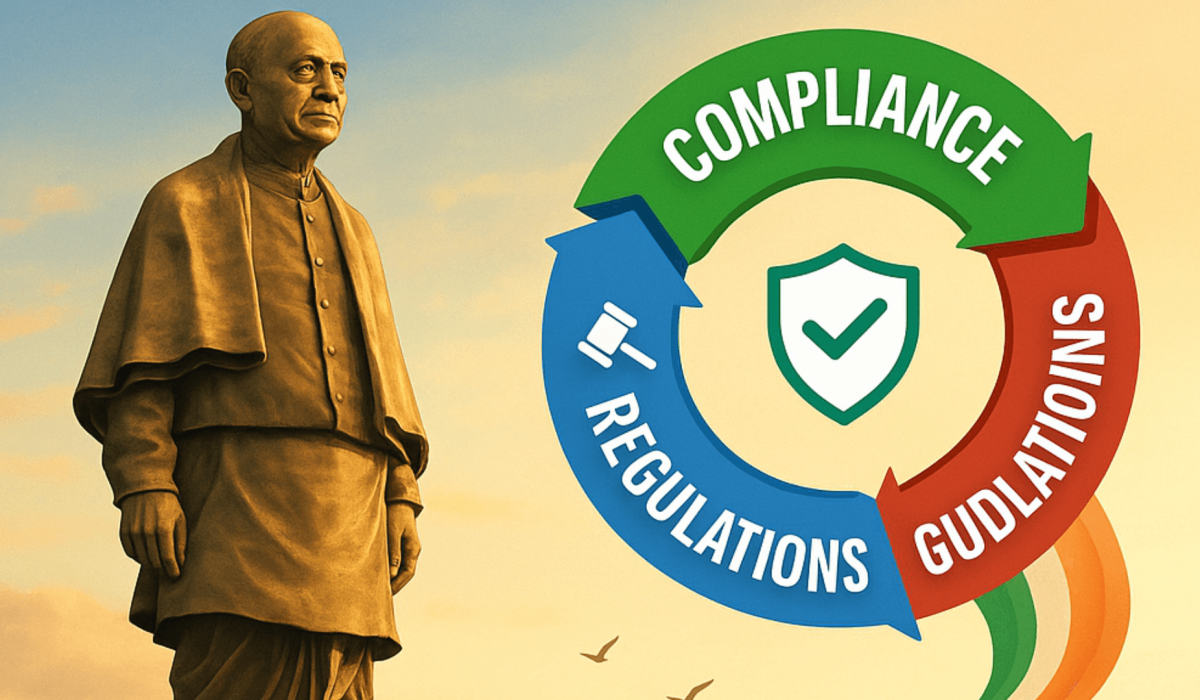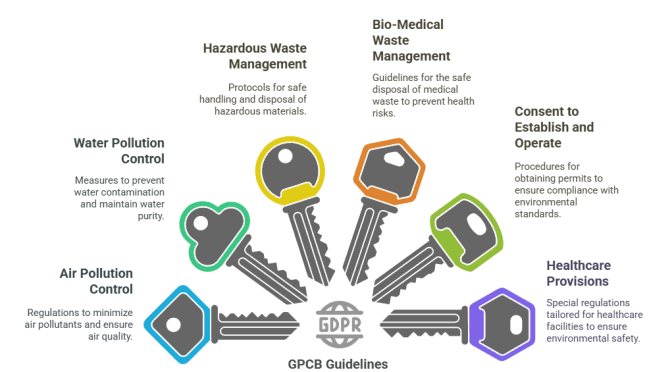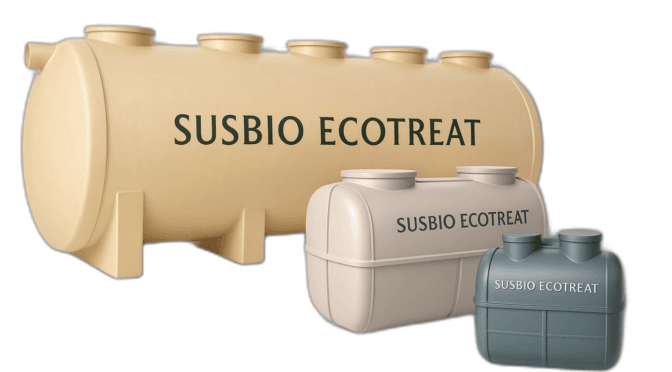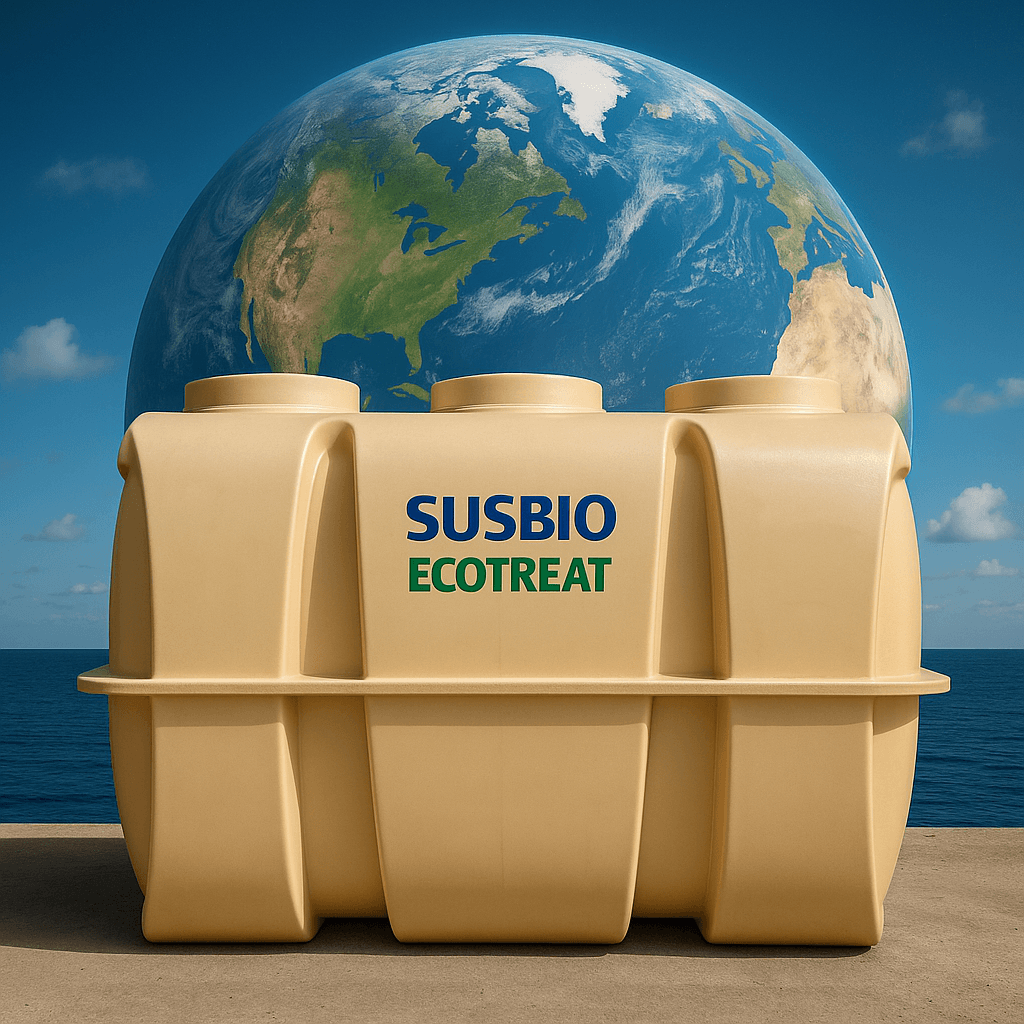
Gujarat’s rapid industrialization has brought both economic prosperity and pressing environmental challenges. The Gujarat Pollution Control Board (GPCB) stands at the forefront of ensuring that growth does not come at the expense of the environment. With the release of the 2025 guidelines, GPCB has set new benchmarks for pollution control, compliance, and sustainable industry practices. This blog explores what GPCB is, its importance, the latest regulations, what happens if you don’t comply, and how innovative solutions like SUSBIO ECOTREAT are helping businesses meet these evolving standards.
What is the Gujarat Pollution Control Board (GPCB)?
The Gujarat Pollution Control Board (GPCB) is a statutory authority established to enforce environmental laws and ensure the prevention and control of pollution in Gujarat. Created under the Water (Prevention and Control of Pollution) Act, 1974, GPCB is also responsible for implementing the Air (Prevention and Control of Pollution) Act, 1981, and the Environment Protection Act, 1986.
Key Functions of GPCB
Granting environmental clearances and No Objection Certificates (NOC) to industries.
Monitoring and regulating emissions, effluent discharge, and hazardous waste management.
Conducting environmental impact assessments and recommending mitigation measures.
Promoting sustainable development and conservation of natural resources.
Why Is GPCB Important?
GPCB is essential for Gujarat’s environmental and public health. Its vigilant oversight ensures:
Industrial growth does not compromise ecological balance.
Air, water, and soil quality are maintained for public health.
Sustainable development through eco-friendly technologies and responsible industrial practices.
Without GPCB’s regulation, unchecked industrial activity could lead to severe environmental degradation, health crises, and loss of biodiversity.
GPCB Guidelines 2025: Key Parameters and Regulations

1. Air Pollution Control
GPCB mandates rigorous measures to control industrial air emissions:
Mandatory Installation of Pollution Control Devices: All major industries must install approved air pollution control equipment such as scrubbers and electrostatic precipitators. Large industries are also required to install Continuous Emission Monitoring Systems (CEMS) for real-time tracking of pollutants.
Stack Emission Standards: Regular monitoring of stack emissions for particulate matter, SO₂, NOx, CO, and VOCs is required, with strict emission limits.
Ambient Air Quality Monitoring: Facilities must monitor outdoor air quality around their premises to ensure pollutant levels do not exceed National Ambient Air Quality Standards.
Location Criteria: High-pollution industries must be sited at a safe distance from water bodies and residential areas.
2. Water Pollution Control
GPCB’s 2025 guidelines enforce strict water pollution norms:
Effluent Discharge Limits: There are stringent limits on the discharge of treated effluents into water bodies. Key parameters include pH, BOD, COD, TSS, oil & grease, and heavy metals.
Effluent and Sewage Treatment: All industries must install Effluent Treatment Plants (ETPs) and, where applicable, Sewage Treatment Plants (STPs). New factories must treat their effluent before sending it to a Common Effluent Treatment Plant (CETP) for further processing.
Zero Liquid Discharge (ZLD): The guidelines encourage ZLD, where no liquid waste is released into the environment.
Monitoring and Record-Keeping: Regular testing and record maintenance are mandatory for compliance.
3. Hazardous Waste Management
Authorization: Any entity generating, storing, transporting, or disposing of hazardous waste must obtain authorization from GPCB.
Safe Handling and Disposal: Hazardous waste must be collected, stored, transported, and disposed of as per prescribed safety norms to prevent environmental contamination.
Manifest System: A manifest system is used to track hazardous waste movement and ensure safe disposal.
4. Bio-Medical Waste Management
Authorization: All healthcare units, including those with fewer than 30 beds, must obtain authorization from GPCB for handling bio-medical waste.
Segregation and Disposal: Waste must be properly segregated, stored, and sent to authorized Common Bio-medical Waste Treatment and Disposal Facilities (CBWTFs).
Streamlined Consent for Small Units: For non-bedded and small healthcare units, GPCB has simplified the consent process, granting approvals quickly, followed by a compliance inspection.
Qualified Compliance Officer: Small healthcare units must appoint a qualified person to oversee waste management.
5. Consent to Establish and Operate
Consent to Establish (CTE): Required before construction or installation of any industrial unit. The application must detail pollution control measures and location compliance.
Consent to Operate (CTO): Sought after installation of pollution controls and before commencing operations. Periodic renewal is required based on industry category.
Inspection and Verification: GPCB inspects the facility to verify compliance before granting or renewing consent.
6. Special Provisions for Healthcare Units
Simplified Process: Healthcare units with fewer than 30 beds benefit from a streamlined process with quick approval and post-approval inspection.
Compliance Officer: Appointment of a qualified person is mandatory to ensure ongoing compliance.
What Happens If You Don’t Comply?
Non-compliance with GPCB guidelines leads to severe consequences:
Fines: Penalties can range from ₹10,000 to several crores, depending on the severity and duration of the violation.
Imprisonment: Persistent or grave violations can result in imprisonment of up to 7 years.
Closure of Operations: GPCB can order the closure of non-compliant units, disconnect water/electricity supply, or revoke consents, halting business operations.
Revocation of Consents: Withdrawal of CTE or CTO means the business cannot legally operate until compliance is restored.
Environmental Compensation: Violators must pay for environmental restoration and may face additional compensation charges.
Reputational Damage: Lists of defaulting companies are published annually, affecting business reputation and stakeholder trust.
Steps for Pollution Control and Compliance
Obtain GPCB Certification:
Apply for CTE and CTO through the official GPCB portal with all required documentation.Install Pollution Control Equipment:
Set up ETPs, STPs, air pollution control devices, and waste storage facilities.Regular Monitoring and Reporting:
Conduct self-monitoring and submit compliance reports to GPCB as scheduled.Waste Reduction, Recycling, and Reuse:
Implement best practices for minimizing waste and recycling treated water and materials.Engage Certified Vendors:
Use only authorized agencies for hazardous and bio-medical waste disposal.
How Pollution Control Helps: The Role of GPCB Rules
Environmental Protection: Prevents contamination of air, water, and soil, ensuring a healthier ecosystem.
Public Health: Reduces the risk of diseases caused by pollution.
Resource Conservation: Promotes recycling and reuse, conserving water and raw materials.
Legal Security: Shields businesses from legal action, penalties, and reputational damage.
Sustainable Development: Encourages industries to adopt green technologies and minimize their ecological footprint.
Role of SUSBIO and SUSBIO ECOTREAT in Pollution Control

SUSBIO and its flagship solution, SUSBIO ECOTREAT, are transforming wastewater management and supporting industries and communities in achieving GPCB compliance.
How SUSBIO ECOTREAT Supports Pollution Control
GPCB Compliance for Wastewater Discharge:
SUSBIO ECOTREAT ensures treated wastewater consistently meets or exceeds GPCB and CPCB discharge standards through advanced treatment processes.High Water Recycling Efficiency:
Recycles up to 98% of treated water, which can be reused for irrigation, landscaping, flushing, and industrial processes, reducing freshwater demand.Dual Anaerobic-Aerobic Treatment:
Utilizes a dual biological process for comprehensive purification, maximizing pollutant removal and minimizing sludge production.Energy Efficiency and Low Maintenance:
Designed for low energy consumption and minimal ongoing maintenance, with quick and hassle-free installation.Customizable and Scalable Solutions:
Modular design allows for easy customization and scalability, suitable for residential societies, commercial complexes, and large industries.Durability and Corrosion Resistance:
Made from high-quality FRP, SUSBIO ECOTREAT units are resistant to corrosion and harsh environmental conditions.
Why SUSBIO ECOTREAT Stands Out
Quick Installation: Prefabricated and modular, minimizing site disruption.
Cost-Effective Operations: Lower energy and maintenance costs.
Regulatory Assurance: Proven performance in meeting strict discharge norms.
Applications Across Sectors
SUSBIO ECOTREAT is trusted by:
Residential complexes and apartments
Educational institutions
Industrial facilities
Shopping malls and commercial spaces
Hotels, resorts, and hospitals
Frequently Asked Questions (FAQs)
Q1: What is the main role of GPCB?
A: GPCB regulates and monitors industrial and commercial activities to prevent and control pollution, protect natural resources, and promote sustainable development.
Q2: Do all businesses need GPCB certification?
A: Yes, any industry or facility likely to cause pollution must obtain GPCB’s Consent to Establish and Consent to Operate before starting operations.
Q3: What are the key parameters monitored by GPCB?
A: Air quality (PM, SOx, NOx), effluent quality (BOD, COD, TSS, pH, heavy metals), and hazardous waste management are among the most critical parameters.
Q4: What are the penalties for non-compliance?
A: Penalties include hefty fines, imprisonment, closure of operations, and revocation of environmental clearances.
Q5: How does SUSBIO ECOTREAT help with compliance?
A: SUSBIO ECOTREAT provides advanced, efficient, and sustainable sewage treatment solutions that enable industries to meet or exceed GPCB discharge norms, recycle water, and minimize environmental impact.
Conclusion
The Gujarat Pollution Control Board’s 2025 guidelines set a robust and comprehensive framework for pollution control, environmental protection, and sustainable industrial growth. Strict compliance is not just a legal mandate but a responsibility towards society and the environment. Advanced solutions like SUSBIO ECOTREAT empower industries and communities to meet GPCB norms efficiently, conserve resources, and contribute to a cleaner, greener Gujarat. By following these guidelines, businesses not only avoid penalties but also become partners in building a sustainable future for the state and its people.


